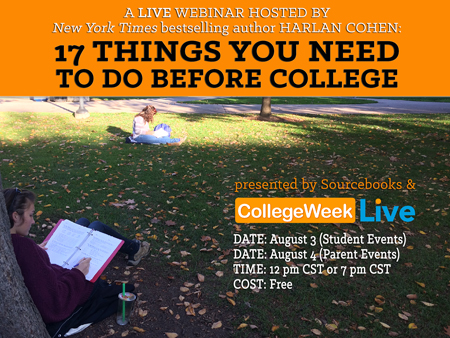
Today my daughter turns 35. It seems like yesterday we were visiting and applying to colleges. Since then, she graduated with a Bachelors and a Masters in Marketing. She has two wonderful boys and the life she always hoped for.
From the time she was small, she dreamed of going to college in Boston. It’s a mystery why she chose that city. We had never visited there. The only tie she had to it was from a movie that mentioned Boston University. I say this to make a point—college was always in her future. She worked hard during high school and got the grades and multiple scholarships to attend college in Boston.
But if I knew then what I know now, we would have done things differently.
Establish a relationship with your high school counselor early
High school counselors are invaluable resources for scholarships, college information, volunteer opportunities and as a reference. My daughter barely knew her counselor and when we needed help, it was a struggle. A relationship would have made things so much easier.
Use all four years of high school to get ready for college
We waited until senior year to start preparing for college. Needless to say, it was a train wreck. Between all her senior activities, trying to visit colleges, testing, applying for scholarships, and applying to colleges we were both stressed and irritable. Some of those tasks can be done before senior year, even during freshman year. Plan ahead.
Study for the PSAT
My daughter did not study for the PSAT. We had no idea what was at stake with this test. If she had studied, she could have qualified as a National Merit semi-finalist and finalist. This would have meant full-ride scholarships and more at numerous colleges throughout the country.
Visit every college you apply to
This was a tough lesson to learn. My daughter applied to numerous colleges without visiting. After being awarded a full-ride scholarship at one of them, we visited. She immediately hated the campus and the entire college setting. It was disappointing for me, as a parent knowing this college would have meant no debt. But it would have been worse if she had gone there and dropped out freshman year.
Spend time writing and rewriting the college essay
The essay is your best chance to give the colleges a picture of who you are. There are so many available essay coaches online and free essay help available. I wish we had taken advantage of those opportunities.
Don’t apply to colleges that aren’t within your financial reach
When my daughter received an acceptance from her dream college without any financial aid we knew it was impossible for her to attend. We were anticipating scholarship money to assist us but when it didn’t come through, she was devastated. Do your homework and look at the colleges financial aid profiles. If they award a small percentage of aid and you can’t afford it without it, don’t apply.
Apply early to get the best financial aid
The early bird gets the worm with financial aid. My daughter applied regular admission and her dream college had already dispersed aid by the time they received her application. If I had known then what I know now, she would have applied for early decision.
Start applying for scholarships early
We waited until senior year to apply for scholarships. It was a struggle working all the senior activities in and finding time to apply for scholarships. There are scholarships for all ages—start early.
Appeal the award letter and ask for more money
With several full-ride scholarship offers we could have used them to ask for more aid from her first and second choice college. We didn’t ask for more money from any of the colleges and we didn’t appeal any of her awards. It was a huge financial mistake.
Only apply for federal student loans and know your repayment options
We followed this advice in college, but when she decided to get her master’s degree, she took out private student loans. These loans, combined with her federal loans, put a financial burden on her after graduating. It was difficult to pay them back early in her career and she had to file deferments several times, extending the time and interest on the loans. She made the mistake of not investigating repayment amounts before signing for those loans.
Roommate issues can be the worst part of college
I had no idea the drama that would ensue with college roommates. There were tears, anger, frustration and cries to come home early. If she would have discussed these issues with the RA or dealt with the conflict early, it would have saved both of us a ton of heartache.
As you can see, I’ve learned quite a bit since her college years. If you have a question about any of this advice or any other college-related question, feel free to leave a comment. We parents have to stick together.









